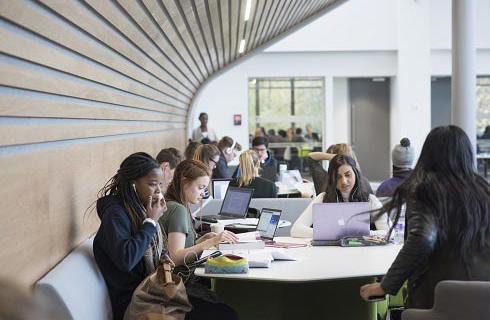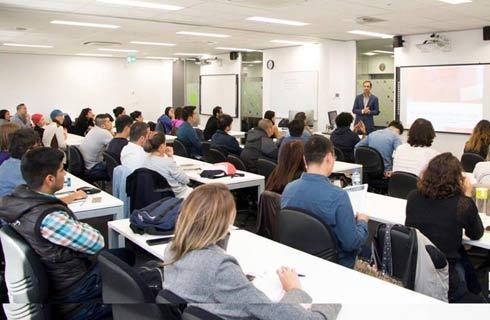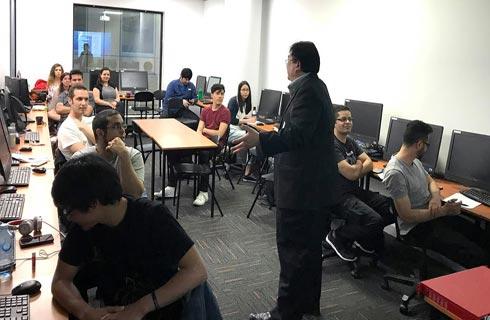国际学生入学条件
General admission requirements
If you meet the minimum entry requirement, you may be selected for one of our courses. However, meeting the minimum requirements doesn’t guarantee that you will be selected.
You may be offered a place once we have assessed:
your formal academic qualifications and results
if you meet any course prerequisites
your compliance with English language requirements
For some courses, an assessment of your personal capabilities and aptitude is also made.
IELTS - 6.0 (no individual band below 6.0)
TOEFL iBT - 64 (no less than 13 in reading, 12 in listening, 18 in speaking, 21 in writing)
展开
IDP—雅思考试联合主办方

雅思考试总分
6.0
- 雅思总分:6
- 托福网考总分:64
- 托福笔试总分:160
- 其他语言考试:PTE Academic - 50 with no communicative skill score less than 50
CRICOS代码:
申请截止日期: 请与IDP联系 以获取详细信息。
课程简介
In this course students will examine the fundamental sciences that underpin biotechnology – chemistry, biochemistry, and microbiology – while investigating the application of biotechnology to areas such as business, ethics and environmental science. This professional major also provides flexible study options that allow students to take minors andor electives studies in chemistry or environmental science or other areas such as business, information technology and designs.<br><br>The main aim of the course is to provide graduates with the knowledge, skills and attitudes to be a professional scientist in their chosen discipline area. Graduates will have a qualification that allows them to seek professional employment, or further studies at honours or postgraduate level.<br><br>Students completing the Bachelor of Science (Biotechnology) should be able to:<br><br>Demonstrate a coherent understanding of science by articulating the methods of science, explain why current scientific knowledge is both contestable and testable by further inquiry and explain the role and relevance of science in society<br>Exhibit depth and breadth of scientific knowledge by demonstrating well-developed knowledge in at least one science disciplinary area<br>Critically analyse and solve scientific problems by evaluating information from a range of sources, designing and planning an investigation, selecting and applying practical and theoretical techniques for that investigation and collecting, recording, interpreting and drawing conclusions from scientific data<br>Effectively communicate science by presenting information or arguments, to a range of audiences, for a range of purposes using a variety of modes<br>Adopt ownership of their own learning and scientific work by being independent and self-directed learners, working effectively and safely in an individual or team context, demonstrating knowledge of the regulatory framework relevant to the disciplinary area and practising ethical conduct
展开







 预科
预科 奖学金
奖学金 实习机会
实习机会 在校学习
在校学习 跨境学习
跨境学习 校园授课-线上开始
校园授课-线上开始 在线/远程学习
在线/远程学习












 昆士兰大学
昆士兰大学

 迪肯大学
迪肯大学

 南昆士兰大学
南昆士兰大学

 墨尔本大学
墨尔本大学

 皇家墨尔本理工大学
皇家墨尔本理工大学

 弗林德斯大学
弗林德斯大学









